
THE VOICE OF INTERNATIONAL LITHUANIA
|
VilNews has its own Google archive! Type a word in the above search box to find any article.
You can also follow us on Facebook. We have two different pages. Click to open and join.
|
Author Archive
- Posted by - (0) Comment
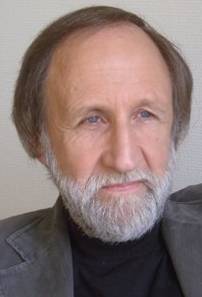
VilNews must be one of the absolutely better magazines in Europe, well written and with excellent photos. Be proud!
Ivar Enoksen, Norway
Ivar Enoksen has many years experience of working in the Norwegian press, television and movie industry. He got the Norwegian Amanda Award for the series manuscript ‘Nattseilere’ (Night sailors). Enoksen has done extensive historical research related to the Arctic areas. He is represented with fiction in several anthologies, and has in recent years also worked as a teacher of film dramaturgy. In 2007 Enoksen published the book 'Tusen glemte menn og historien om den virkelige James Bond' ' (Thousand forgotten men and the story of the real James Bond).
- Bookmark :
- Digg
- del.icio.us
- Stumbleupon
- Redit it
- Posted by - (0) Comment

She did it! Lithuanian climber Edita Nichols conquers Mount Everest
One and a half months of acclimatization, training, uneventful waiting at the Base Camp, and freezing weather – all for a fleering moment on the world's highest peak. In the early morning of Wednesday, May 22, Edita Uksaitė Nichols finally did it – she reached the top of Mount Everest.
Having left the last camp on Wednesday night, Edita's team went on the summit push on the more challenging northern side.
"I did it, I did it, I did it!" Edita called and told her partner right after safely descending to Camp 3. "It was so technical and so scary, it was the hardest thing I have ever done in my life."
"You know what the best thing about it is?" she asked and, after a moment's pause, confided: "I will never have to do that again!"
According to Edita's blog, the group reached the summit at 8 AM. Due to challenging weather, only four people of the group of ten climbers made it to the top.
- Bookmark :
- Digg
- del.icio.us
- Stumbleupon
- Redit it
- Posted by - (0) Comment
Lithuania’s 3 nightmares
By Kestutis Eidukonis, VilNews CEO
At the beginning of this month, I had the great privilege of representing the PLB (World Lithuanian Community) in its bi-annual meeting with members of the Seimas (Parliament). This joint commission meets twice a year and consists of ten members elected by the World Lithuanian Community and ten members of the Seimas, one from each party. The commission has two co-chairs one from the PLB and one from the Seimas. The co-chair from the PLB was Dr. Jonas Prunskis and the co-chair from the Seimas was Ona Valiukevičiūte.
The areas of debate and concern for the commission were:
- Bookmark :
- Digg
- del.icio.us
- Stumbleupon
- Redit it
- Posted by - (3) Comment
Lithuania’s 3 nightmares
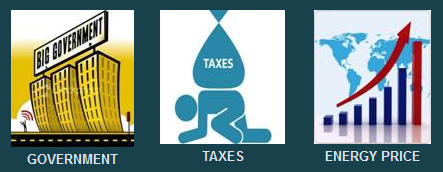
By Kestutis Eidukonis, VilNews CEO
At the beginning of this month, I had the great privilege of representing the PLB (World Lithuanian Community) in its bi-annual meeting with members of the Seimas (Parliament). This joint commission meets twice a year and consists of ten members elected by the World Lithuanian Community and ten members of the Seimas, one from each party. The commission has two co-chairs one from the PLB and one from the Seimas. The co-chair from the PLB was Dr. Jonas Prunskis and the co-chair from the Seimas was Ona Valiukevičiūte.
The areas of debate and concern for the commission were:
- The 2014 Lithuanian Song Festival which will take place July 2-6 in 2014
- The preservation of the Lithuanian language in Lithuania, as an official EU language and abroad by the Lithuanian diaspora.
- The ability of Lithuanian Citizens to hold on to their Lithuanian Citizenship in spite of having another citizenship,
- The improvement of economic conditions in Lithuania so as to improve investment and job creation.
- The absolute imperative of having energy independence.
Out of all these areas the one that attracted the most debate, was the one concerning citizenship. In fact all these areas tied together. All members of the commission agreed that the most important problem facing Lithuania is the massive emigration taking place today. Preservation of Lithuanian song language and Lithuanian citizenship are all tied to improving the Lithuanian economy and energy sector so that Lithuanian citizens would not only not have a reason to leave, but also that the ones who left, would have a reason to return! Creating good high paying private sector jobs is the key to stopping the depopulation of Lithuania.
Interestingly enough not all members of the commission agreed as to what needs to be done.
As an observer of the Lithuanian Economic and Political Renaissance I have been impressed by some of the steps taken by the government to improve the business climate in Lithuania, but there is a total lack of political will by any political fraction to tackle head on the real problems that hold Lithuania back from becoming a true Baltic Tiger.
1. The government of Lithuania and the social safety net of Lithuania is too large for the population to support. With an approximate 37.7% of GDP - the size of the Government is a factor that needs to be addressed. Everyone agrees that there are too many governmental departments, but no one agrees on which one to cut and by how much. It is true that there are a large number of dedicated civil servants, but it is true that there are quite a few unnecessary, redundant departments staffed with wayward relatives who could not make it in the private sector. Lithuania is trying to be Norway, but without the North Sea Oil Fields.
2. The total tax rate on the Lithuanian people is way too high. I realize that, when compared to other EU countries Lithuania is not that high - but keep in mind that the best stimulus that can be given to the Lithuanian economy is the ability for companies to invest and for individuals to buy or to save. As the government continues to grab close to 40 % of the GDP and still find budget short falls the national debt will continue to increase, the cost of servicing the debt will continue to increase. These percentages do not include the payments all companies have to make to the Social Security System. If these payments are included the burden on Lithuanians is even greater. Some people also do not realize that Corporations do not pay taxes they merely collect them for the government. All taxes including social security are passed on the average consumer in the price of the item or service being sold. This tax burden keeps the velocity of money low, and unnecessarily depresses the GDP thus, slowing economic growth. It is interesting that a large number of uninformed politicians are calling for even more taxes such as a tax on property, autos, and financial transactions. This kind of talk has a way of scaring away investors, who need to plan in advance and need economic and political certainty. This periodic desire of politicians to squeeze the neck of the "Golden Goose" to extract even more eggs almost always backfires - all one has to do is to look at the "shadow economy" which officially stands at 30% - but is estimated by some to be as high as 50%. It is an interesting paradox that decreasing tax rates increases state revenue dramatically while increasing the tax rate does the opposite. The high tax rate also has a highly corrosive effect on people's faith in the government. The people see government officials living "high" while they have to struggle, in their minds this then justifies working the "shadow economy".
3. The high cost of energy is another huge drag on the economy. Every Lithuanian living near the borders who can, gets his fuel outside the country. The cost of heating, transportation and energy for manufacturing is included in all products and services made in Lithuania. Without energy independence we will continue to have a huge disadvantage in attracting investment either foreign or domestic. The government is playing around with the Ignalina project and with other energy providers. This will result in increasing the costs to the point of the projects becoming uneconomical. Thankfully the LNG plant is moving ahead and on schedule. But there is no substitute for having and being able to sell energy.
In summary if we want to stop the waves of emigration we need to turn the country around. The question is who has the will and the guts to do it?
- Bookmark :
- Digg
- del.icio.us
- Stumbleupon
- Redit it
- Posted by - (0) Comment
An American growing
up in SIBERIA
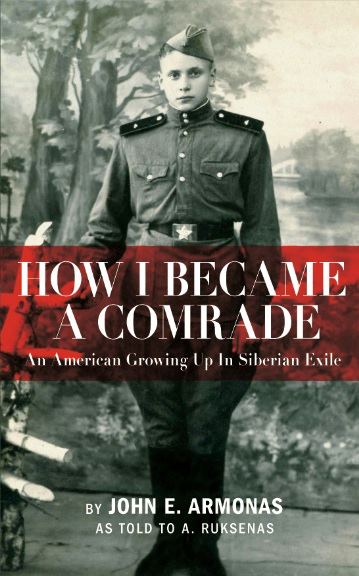
NEW BOOK: "How I Became A Comrade:
An American Growing Up In Siberian Exile" by John E. Armonas
as told to Algis Ruksenas, is NOW AVAILABLE thru Amazon.com.
An American child deported with his mother to Siberia, torn from her when she is given additional punishment at hard labor in the notorious GULAG, is raised as a Soviet in order to survive.
John Armonas was a U.S. citizen, but had been left behind when his American-born father and five-year old sister, Donna, were urged to leave Lithuania back for the United States, after the Soviets first occupied Lithuania in 1940. His mother Barbara, a native Lithuanian, was assured by American officials she could soon follow with nine-month old John, as soon as her immigration papers were expedited. Instead, they ended up in Siberia...
- Bookmark :
- Digg
- del.icio.us
- Stumbleupon
- Redit it
- Posted by - (0) Comment
An American growing
up in SIBERIA

NEW BOOK: "How I Became A Comrade:
An American Growing Up In Siberian Exile" by John E. Armonas
as told to Algis Ruksenas, is NOW AVAILABLE thru Amazon.com.
An American child deported with his mother to Siberia, torn from her when she is given additional punishment at hard labor in the notorious GULAG, is raised as a Soviet in order to survive.
John Armonas was a U.S. citizen, but had been left behind when his American-born father and five-year old sister, Donna, were urged to leave Lithuania back for the United States, after the Soviets first occupied Lithuania in 1940. His mother Barbara, a native Lithuanian, was assured by American officials she could soon follow with nine-month old John, as soon as her immigration papers were expedited. Instead, they ended up in Siberia in one of the massive waves of deportation from Lithuania and other Soviet occupied countries after World War II. John became Ivan, an "orphan", with his past hidden, because his mother's alleged political offenses would have cut off all chances for his survival, let alone any opportunity for success within the Stalinist system. A dramatic public encounter by his sister, Donna, with Soviet Premier Nikita Khrushchev during his visit to America in 1959, elicited from him a promise to let her mother and brother leave the Soviet Union and be reunited, ending a separation of 20 years, but not without additional bureaucratic harassment. This is a true story of survival, adaptation, and ultimate triumph over injustice.
Facebook page: https://www.facebook.com/HowIBecameAComrade
„How I Became A Comrade: An American Growing Up In Siberian Exile“ is available at Amazon and Barnes & Noble
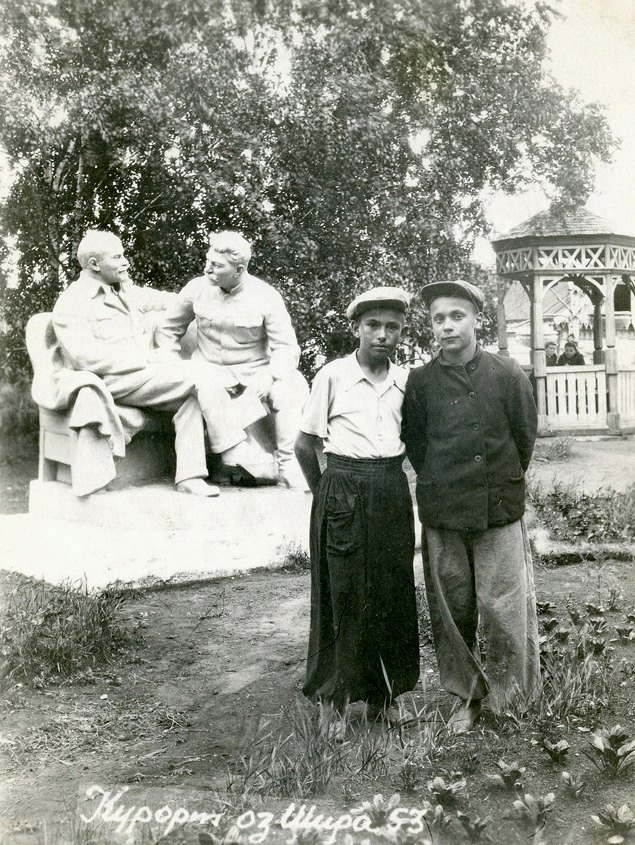
John E, Armonas (right) at age 13 and his friend standing in front of a statue of
Lenin and Stalin at Lake Shira in Kazakhstan in 1953.
- Bookmark :
- Digg
- del.icio.us
- Stumbleupon
- Redit it
The strange phenomenon of Eurovision
- Posted by - (0) Comment
Eurovision for Lithuanians is like one more religion after basketball. Everybody has their opinion on everything: how the artist should look, how they should move on the stage, what the song should be, how it should be performed. The strangest thing is that with such a big group of experts, somehow we pick the wrong person every year.
Every year lots and lots of groups and single artists fills out applications to participate in the Eurovision song competition. Every year thousands of people are watching the National Finals to vote for the best song and finally win. And every year right after the results of the National Final the weirdness begins.
- Bookmark :
- Digg
- del.icio.us
- Stumbleupon
- Redit it
The strange phenomenon of Eurovision
- Posted by - (0) Comment
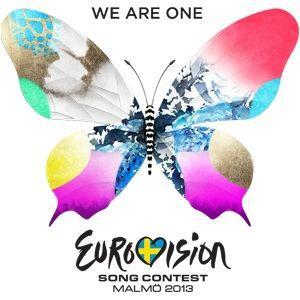
Eurovision for Lithuanians is like one more religion after basketball. Everybody has their opinion on everything: how the artist should look, how they should move on the stage, what the song should be, how it should be performed. The strangest thing is that with such a big group of experts, somehow we pick the wrong person every year.
Every year lots and lots of groups and single artists fills out applications to participate in the Eurovision song competition. Every year thousands of people are watching the National Finals to vote for the best song and finally win. And every year right after the results of the National Final the weirdness begins.
After announcing the results of the National Final in one night the chosen one becomes the worst one. After getting the majority of the votes from the TV viewers, the chosen artist becomes the most criticized person in whole country. It’s seems that overnight everybody changes their opinions or that during the voting process everybody was in some kind of trance. There has never been a person that would win the National Contest and would still remain the favorite.
The reverse process is happening in Eurovision’s semi-finals. If our representative, that no one believed in, gets through to the finals the whole country becomes believers. After the semis people regain hope and after promising last place jumps to the top 10 or says „Didn‘t I say so?“. And that lasts for two days. After that, back to believing in last place.
Eurovision brings that strange emotion in peoples lifes when we are able to be the bigest optimists and pesimist at the same time. We wish and hope for the best places, we vote for the best national song, and at the same time we are so afraid to confes that we are believers that we start to declare our pessimism instead. It‘s easyer to say that we will loose and enjoy the winning then hope for the best and cry in the end.
This year everything was as usual. No one liked Andrius Pojavis, but somehow he was elected. No one believed in him, but after wining in the semi-final everyone was saying that this is how it should be. In two days everybody was promising him the last place again. After attention from journalist from abroad, Lithuanians also started to believe in top 10. The bigest shocker this year though, was not being close to last, but not geting votes from the UK and Latvia. Lats are our neighbors and we were always generous to one another in a matter of points. In the UK, the biggest number of emigrants from lithuania are in the UK, and if we are expecting any votes it‘s from countries that lithuanians lives in.
I think what I‘m trying to say is that we should not be afraid to say loud and clear that we are believers and actually belive and suport those who are representing us. Because if even we won‘t belive in them, then who will?
- Bookmark :
- Digg
- del.icio.us
- Stumbleupon
- Redit it
- Posted by - (0) Comment
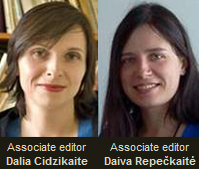
Two new
VilNews editors!
We are pleased to announce that VilNews has got two new skilled Associate Editors, Dalia Cidzikaite and Daiva Repečkaitė. We can say with certainty that they are going to mean a lot for our worldwide, online e-publication and the accompanying wonderful network of global readers with Lithuania in their hearts. Please welcome them! See also our Section 2 and Section 3.
Eugene Rangayah
Welcome! Looking forward to some great editorials!
Vytenis Folkmanas
welcome !!!
Dalia Cidzikaite
Thank you! We will do our best!
Algis Ruksenas
Sveikinu nuosirdziai ir linkiu visakeriopos sekmes!
Ingrida Bublys
Silciausi sveikinimai!
Teresa Boguta
sveikinimai Dalia ! Sekmes ir kurybingu metu!
Ben Kordell
Sveikinu Dalia. Viskas bus okee dokee.
Kestutis Stanciauskas
Sveikinu!!!
Dalia Cidzikaite
Ačiū visiems už sveikinimus.
- Bookmark :
- Digg
- del.icio.us
- Stumbleupon
- Redit it
- Posted by - (0) Comment

U.S.- Lithuanian
Leland H. Ruth receives U.S. cooperative community’s
highest honor
American-Lithuanian Leland H. “Lee” Ruth received the U.S. cooperative community’s highest honor on May 8, 2013 when he was inducted into the Cooperative Hall of Fame. The ceremony was held at the National Press Club in Washington D.C.
The Cooperative Hall of Fame award was established by the National Cooperative Business Association to honor individuals who have performed outstanding service in advancement of cooperatives as a business model.
His professional career focused on service to agricultural cooperatives, including 33 years with the Agricultural Council of California. His leadership helped establish the Center for Cooperatives at the University of California and the California Center for Cooperative Development. As co-chair of the National Rural Cooperative Development Task Force, he was instrumental in creating the Rural Cooperative Development Grant Program a USDA source of funding that now supports the work of 29 Cooperative Development Centers across the country.
Ruth is of Lithuanian heritage, with the family surname originally being Rutkauskas. In 1999 he served as a co-founder of the Auksuciai Foundation. This non-profit organizations' mission is to help small scale Lithuanian farmers succeed. It funds the Auksuciai Farm & Forestry Center near Kursenai, Lithuania. The Center conducts a year long program of research on new crops, improvement of existing crops and improved farming practices. This year marks the 14th year of service with a Farmers’ Field Day set at the farm on May 24, 2013.
- Bookmark :
- Digg
- del.icio.us
- Stumbleupon
- Redit it
- Posted by - (0) Comment

April brought a visible increase in Lithuania's real estate market activity as property transactions jumped 16% year on year, reports news2biz LITHUANIA.
Apartment trade increased by a solid 35% to a post-crisis monthly record of 2,343 units, according to preliminary figures from the real estate registry operator Registru centras. The Vilnius market went even higher with a 47% jump in April to close to 800 units.
Trade in non-residential building and premises was also up y/y across the country but still below record months in 2012. Trade in land plots intensified by 15% y/y.
Because of the absence of fundamental factors that could signal a general improvement in the financial situation of households (real wages still not growing, unemployment still in low teens), market analysts believe that the jump in activity is related to real estate being seen as a good investment alternative to low interest rate bank deposits.
Such an interest is also backed by the current ultra-low interest rates on mortgage loans, and banks are reporting a rising mortgage loan demand. For instance, Danske Bank, a relatively small player on the home loan market, said the number of mortgage loans it concluded during Q1 2013 almost trebled y/y to around LTL 33m.
"I won't go into details about why we found no common language with the first buyer. Now we have signed a head of terms with another potential buyer who is already known for its investments in Vilnius. In a few months we may have a deal," says Richard Schrijer, head of Evita's owner Respektas, to news2biz.
Evita has 4,500 sq.m of commercial space on Savanoriu Avenue, a busy commercial street leading to the Kaunas exit road. "It is fully leased out to two tenants – Norwegian Storebrand and local Teo telecom. The residential units are not covered by the potential sale. Of these we have 10 still vacant and around 50 sold," says Schrijer.
Although he would not name the new potential buyer, Schrijer says it is quite optimistic about investment leads that it sees in Vilnius. "These investors are not in the least as gloomy as some of the local players. They say, go to Southern Europe, see and compare."
Evita's original developer was Dutch-owned MEI Baltija (see no 300 page 7). "The present owners of Evita used to be minority shareholders in MEI Baltija. For them it was their first project in Lithuania and they are likely not to call it a success story," Schrijer notes.
The Norwegian company that was interested in Evita is Auris LT, a commercial real estate company owned by Odd Rune Austgulen, a Norwegian investor. Evita could have been Auris LT's second project after a new office centre in one of Vilnius' residential areas that was acquired more than a year ago. Austgulen has also co-invested in two logistics properties in Vilnius and Riga.
- Bookmark :
- Digg
- del.icio.us
- Stumbleupon
- Redit it
- Posted by - (0) Comment
CSC Baltic, the Lithuanian arm of US Computer Sciences Corp (CSC) global IT services player, plans to boost its Vilnius-based office with hundreds of new staff, reported news2biz LITHUANIA.
Five years in business, the Vilnius unit specialises in providing 24/7 IT infrastructure support for mostly finance, logistics and travel sector customers located in the Nordics but also other European countries and even much further, in the US and Asia. It now employs 290 staff, of which around 50 have been added in recent months.
During the next few years these two figures will dwarf as CSC Baltic plans to grow to 1,000 jobs. The growth will be part of CSC's new USD 1bn, 12-18 month cost cutting campaign announced by the company's new CEO in mid-2012. The New York-listed group was hit with a USD 4.2bn loss last year. Cost cutting, among other things, will mean more jobs for the relatively cheap Vilnius office.
At a press conference in Vilnius to mark the 5-year anniversary and announce the expansion plan, John Walsh, CSC's Denmark-based VP and head for Northern Europe, commended Lithuania's ability to supply multi-language staff who provide IT support on using various business management and security systems.
- Bookmark :
- Digg
- del.icio.us
- Stumbleupon
- Redit it
- Posted by - (0) Comment
Aage Myhre is
leaving Lithuania
Architect Aage Myhre, VilNews editor-in-chief,
interviewed by Ramunas Kontrimas, news2biz
www.news2biz.com
ramunas@news2biz.com
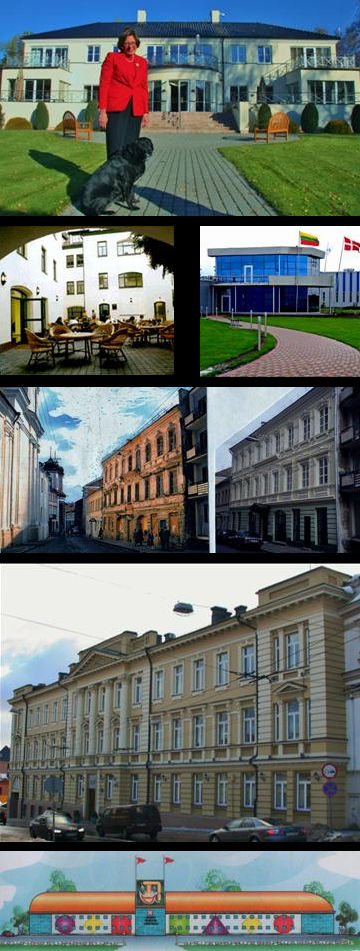
Some of architect Aage Myhre’s projects in Lithuania
over the last 20 years.
Aage Myhre, 60, is the Norwegian architect, journalist, publisher whose community building skills have made him a small expat phenomenon in Vilnius. He is about to return to his home country after twenty two years in Vilnius, taking along his Lithuanian spouse and two daughters, but leaving his other object of admiration, Vilnius' Old Town, behind.
news2biz met Aage to ask him to reflect on his Lithuanian stay that lasted much long than he expected.
- Bookmark :
- Digg
- del.icio.us
- Stumbleupon
- Redit it
- Posted by - (13) Comment
|
Aage Myhre is
|
|
Some of architect Aage Myhre’s projects in Lithuania
|
Architect
Aage Myhre, VilNews editor-in-chief,
interviewed
by Ramunas Kontrimas, news2biz
www.news2biz.com
ramunas@news2biz.com
Aage
Myhre, 60, is the Norwegian architect, journalist, publisher whose community
building skills have made him a small expat phenomenon in Vilnius. He is about
to return to his home country after twenty two years in Vilnius, taking along
his Lithuanian spouse and two daughters, but leaving his other object of
admiration, Vilnius’ Old Town, behind.
news2biz
met Aage to ask him to reflect on his Lithuanian stay that lasted much long
than he expected.
How
did your Lithuanian story begin?
I
used to have my architect’s office in Oslo that I shared with 15 other local
entrepreneurs, lawyers, politicians and the like. One day in 1990, a ponytailed
young man comes in, says he’s an advisor to the then president Vytautas
Landsbergis of the country that we’d hardly heard about, Lithuania. He’d been
told – to our surprise – that we are a group of leading lobbyists in Norway,
and that Landsbergis’ wants Norway to be the country of his first official
visit to the West, so he needs our help in arranging – but he has no money.
Three
of us in Oslo agreed to help, and with the support of Statoil, other big
companies and the Oslo Municipality we managed to arrange a successful visit
for Landsbergis’ a couple of months later. During his visit, Landsbergis
invited us to Lithuania and we went there in November 1990. Our task was to
negotiate and arrange the installation of the Norwegian satellite telephone
system at the Lithuanian Parliament. At the same time I was helping Statoil to
get acquainted with the Lithuanian and the Baltic market.

During his first visit to Lithuania, in November 1990, Aage
took this picture at Rotušes aikštė (Town Hall Square) in Vilnius. This was probably the very last
picture ever made of the statue of Vincas Mickevičius-Kapsukas.
Next morning the statue had been knocked down by local
activists…

19 January 1991: Aage with President Vytautas Landsbergis in
the
Lithuanian Parliament (Seimas), while the Soviet troops
and tanks continued to surround the building.
During
this stay I, being relatively newly divorced, met Egle, my future Lithuanian wife.
That was not all – I also fell in love with Vilnius’ Old Town. As an architect,
I saw the beauty of the place where others saw buildings falling apart, and
decided that that was my chance to help bring the best out of it.
I
got into renovation projects right away, and some of the earliest Old Town
building renovation projects are mine. There were no good-quality building
materials at that time in Lithuania, so I had to import windows, doors, paints
etc, and for a couple of years I think I was a leading importer of Norwegian
products to Lithuania.
New
projects followed and eventually I had too much interesting work on my hands to
return home, so I started my architect’s business in Vilnius with my new
father-in-law.

Aage
met his coming wife Eglė already during his first visit to
Lithuania,
in 1990.
In 1992 they married in the St. Peter & Paul Cathedral in Vilnius.
Why
have you decided to leave?
There
are a number of reasons. I’ve been investing in Lithuanian real estate, with
own money too. The crisis of 2008-2010 hit me really hard, while today there is
so little happening in the local property development market – it’s not
interesting enough for me anymore.
Another
reason is family. I have three grown-up children in Norway and two daughters here.
I would like to unite them and have my big family around me as much as I can.
The
third reason is my Lithuanian children. As children, they have dual Lithuanian
and Norwegian citizenship now but Norway only allows one for adults; to qualify
for that you need to have spent certain time in Norway. The social safety
system in Norway is probably the best in the world, and I want my kids to enjoy
it. Then there’s education – Lithuanian high schools are good, but university
education is generally not up to standard yet.
What
is your take on modern Lithuanian architecture?
I’m
a classic style architect, and few of modern buildings in Lithuania have
impressed me. Local architects or property owners seem to be more interested in
building monuments to themselves, to the point of looking funny.
For
instance, Vilnius’ biggest new commercial development around the Europa office
tower and shopping centre looks so messy to me. One particular area looks like
a stone desert, there’s nothing there that makes you want be there. The
neighbouring Konstitucijos Avenue is one big transport artery that completely
blocks the Old Town on the other side of the Neris River from the new central
business district. I think placing it underground and creating a green oasis wouldn’t
have cost much more while creating a much friendlier place.
I
believe in holistic architecture – how buildings, the surrounding area and
people interact with each other is as important as designing an interesting
building. I like to compare modern Lithuanian architecture to a casino – you
throw the dice and get an assortment of numbers-buildings, you have no control
over them and therefore urban planning suffers from that. The more classic
style architecture I compare to chess – every move has intelligent consequences
to the game.
How
has it been for you, a foreigner, to run a small business here?
It’s
been different from Norway, yes, and there have been many challenges. Many
foreigners who come here start complaining, especially about corruption. Of
course, corruption exists here but personally I have never paid a single Litas
in bribes to any local politician or bureaucrat during my projects. If you
behave like a normal person with a certain degree of politeness, you don’t have
to go into these traps. But if you come with your nose poked in the air, you
will quickly face problems.
If
you have a positive attitude, Lithuania is a fantastic place to be and do
business, especially now with the country’s low taxes – you don’t even have to
do business here, only have your base and do business wherever you like.
The
Vilnius International Club that you are the founder of, the VilNews
English-language online magazine about Lithuania – they seem to be more about
history and for older Lithuanians living abroad rather than about current
affairs and for young people.
It’s
just like human being – they have various interests, and so we at VIC and VilNews
try to offer a mix of everything – history, politics, culture, business. I
admit, VIC was not as active when I was deeply involved in launching VilNews as
a newsletter for VIC but now it’s again a vibrant community. As the basis for
VIC activity, I’ve been using borrowed slogans from two well-known brands,
Nokia’s Connecting People and Nike’s Just Do It.
VIC
members break down 50/50 between Lithuanians interested in foreign affairs and
the local expat community. I believe VIC today is the best forum for any kind
of local-foreign discussion – it’s not just a chamber of commerce, it’s not
only a culture institute.
And
we are certainly going to have more young faces at VIC and VilNews, it
just takes time for me to walk them through.
In
Norway, Lithuanians last year became the second biggest immigrant community.
How do you feel about it?
What I don’t like about Norwegian authorities is that
they are discussing only what advantages (low-cost skilled labour) or
disadvantages (crime) the Lithuanian immigrants create for Norway. I never
heard somebody say, ‘This is so bad for Lithuania that we take their best brains’.
If this issue was discussed from both sides early on, the authorities could
have become more focused on it and could probably come up with some solutions.
Obviously,
many Lithuanians wouldn’t have left their country if it wasn’t for the Andrius
Kubilius’ Conservative government’s austerity policy that started in 2008. It
was like putting brakes on in a car that was already standing still. I
personally urged Kubilius to write to Scandinavian prime ministers to seek some
kind of assistance. For instance, to a country like Norway to support Lithuania
would have cost very little. Later I met Norway’s Conservative Party leader
Erna Solberg and asked if Kubilius ever asked for help and support to deal with
the crisis or the energy prices pushed up by Russia. She said, no, never.
In
general, I believe Lithuania and the Baltics should seek closer cooperation
with Norway and Scandinavia. The EU is fine but it is such big and unwieldy
machinery. Scandinavia owes you so much because it pretended not to notice that
Lithuania’s anti-Soviet resistance, the bloodiest post-war conflict in Europe,
was taking place 60 years ago at their very doorsteps.


ANDRIUS
KUBILIUS ERNA SOLBERG
Aage
personally urged Prime Minister Kubilius to write to Scandinavian prime ministers
to seek some kind of assistance when the crisis hit in 2008. Later Aage met
Norway’s Conservative Party leader Erna Solberg
and
asked if Kubilius ever asked for help and support to deal with the crisis
or
the energy prices pushed up by Russia. She said, no, never.
We have talked to
Aage
Myhre aage.myhre@vilnews.com
Tel
+370 699 33 222 (mobile)
|
|
- Bookmark :
- Digg
- del.icio.us
- Stumbleupon
- Redit it
- Posted by - (0) Comment
Vilnius International Club (VIC) elected new board in a member meeting a few days ago. Andrius Koncius is new chairman, Amelija Rudenko is new vice chairman, and Rugile Sablinskaite is new director and executive director of the club. VIC is now in its thirteenth year as an active, dynamic meeting place and discussion forum for Lithuania’s international community.
- Bookmark :
- Digg
- del.icio.us
- Stumbleupon
- Redit it
- Posted by - (7) Comment
Two new
VilNews editors!
Today, we are pleased to announce that VilNews has got two new skilled Associate Editors, Dalia Cidzikaite and Daiva Repečkaitė. We can say with certainty that they are going to mean a lot for our worldwide, online e-publication and the accompanying wonderful network of global readers with Lithuania in their hearts. Please welcome them! See also our Section 2 and Section 3.
Associate Editor
DALIA CIDZIKAITE
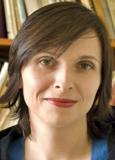 Dalia is the former editor in chief of the Chicago-based Lithuanian newspaper Draugas. She holds a PhD from the University of Illinois at Chicago. She is the board member of the journal Lituanus, Santara-Šviesa Federation, also the member of the Lithuanian American Community, Inc. Archives Committee and Association for the Advancement of Baltic Studies. Dalia is the author of a book The Other in Lithuanian Prose (Vilnius: Lietuvių literatūros ir tautosakos institutas, 2007). She was born
Dalia is the former editor in chief of the Chicago-based Lithuanian newspaper Draugas. She holds a PhD from the University of Illinois at Chicago. She is the board member of the journal Lituanus, Santara-Šviesa Federation, also the member of the Lithuanian American Community, Inc. Archives Committee and Association for the Advancement of Baltic Studies. Dalia is the author of a book The Other in Lithuanian Prose (Vilnius: Lietuvių literatūros ir tautosakos institutas, 2007). She was born
and grew up in Vilnius.
dalia.cidzikaite@VilNews.com
Associate Editor
DAIVA REPEČKAITĖ
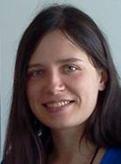 Daiva is a former journalist of Atgimimas weekly, the Baltic correspondent of the Equal Times, and a freelance reporter. She has published articles in IQ magazine, news sites Delfi, lrytas.lt and Bernardinai.lt, as well as Cafe Babel, Göteborgske Spionen and Grads.co.uk. In 2008 she won the European Young Journalist Award "Enlarge your vision" in the Lithuanian language category and later was awarded a Japan Foundation grant for young researchers and journalists. In addition to Lithuanian and English, she speaks German, Russian and Hebrew, as well as some Swedish, French and Japanese.
Daiva is a former journalist of Atgimimas weekly, the Baltic correspondent of the Equal Times, and a freelance reporter. She has published articles in IQ magazine, news sites Delfi, lrytas.lt and Bernardinai.lt, as well as Cafe Babel, Göteborgske Spionen and Grads.co.uk. In 2008 she won the European Young Journalist Award "Enlarge your vision" in the Lithuanian language category and later was awarded a Japan Foundation grant for young researchers and journalists. In addition to Lithuanian and English, she speaks German, Russian and Hebrew, as well as some Swedish, French and Japanese.
daiva.repeckaite@VilNews.com
- Bookmark :
- Digg
- del.icio.us
- Stumbleupon
- Redit it
VilNews e-magazine is published in Vilnius, Lithuania. Editor-in-Chief: Mr. Aage Myhre. Inquires to the editors: editor@VilNews.com.
Code of Ethics: See Section 2 – about VilNews. VilNews is not responsible for content on external links/web pages.
HOW TO ADVERTISE IN VILNEWS.
All content is copyrighted © 2011. UAB ‘VilNews’.

 Click on the buttons to open and read each of VilNews' 18 sub-sections
Click on the buttons to open and read each of VilNews' 18 sub-sections 






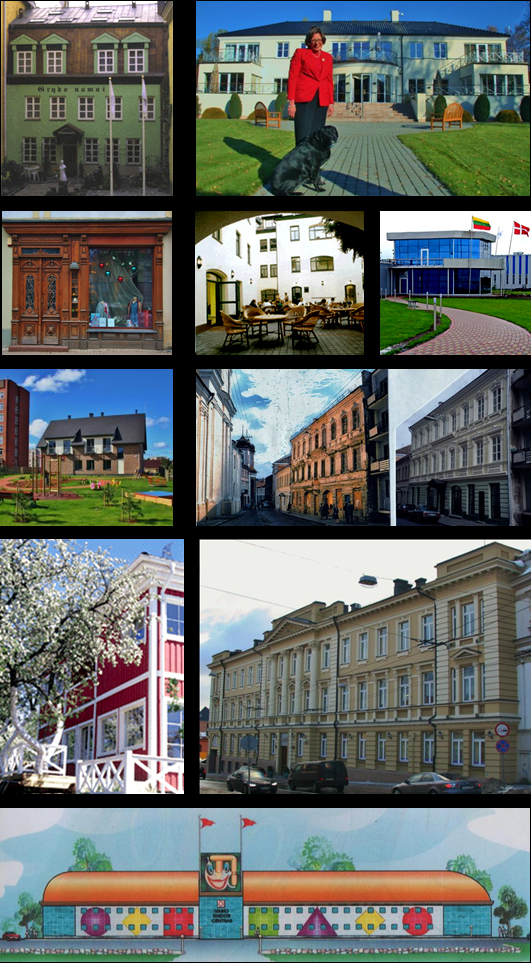

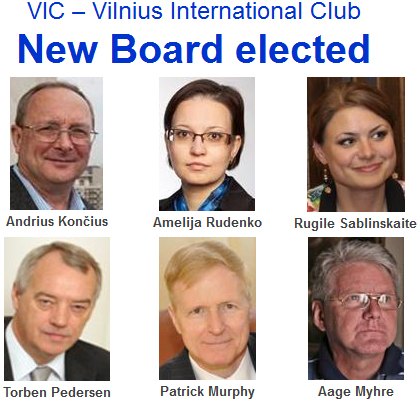









.jpg)



